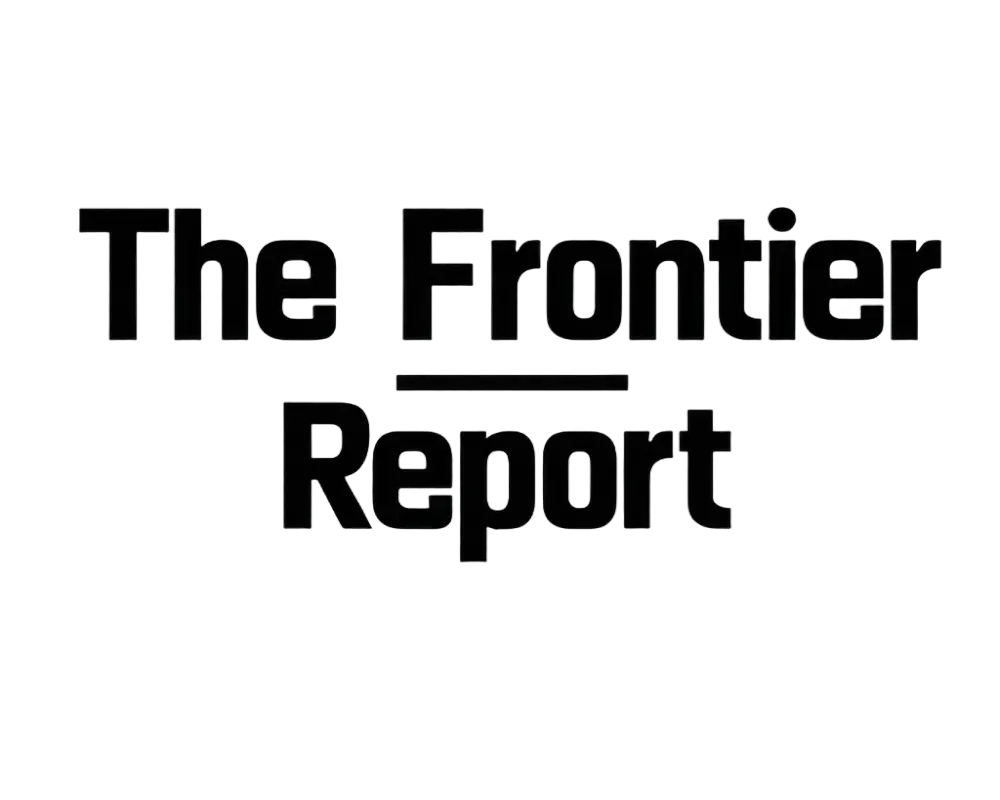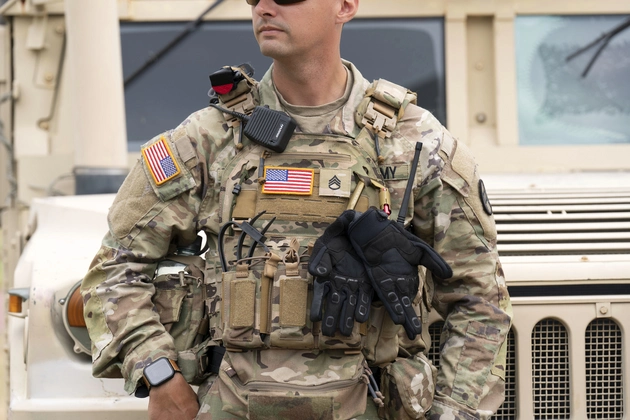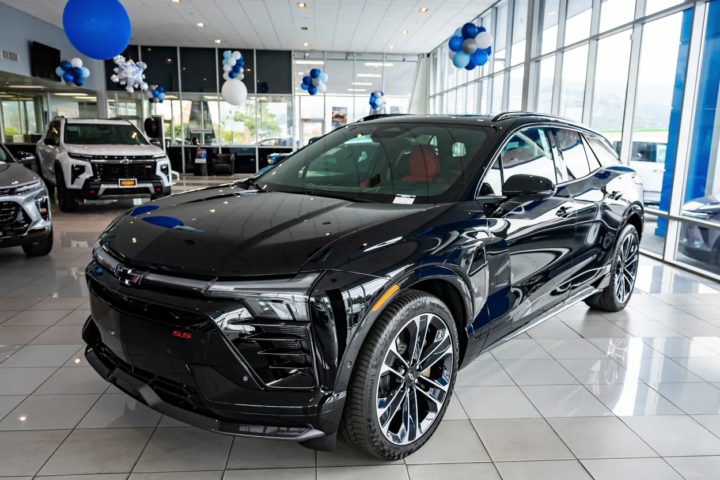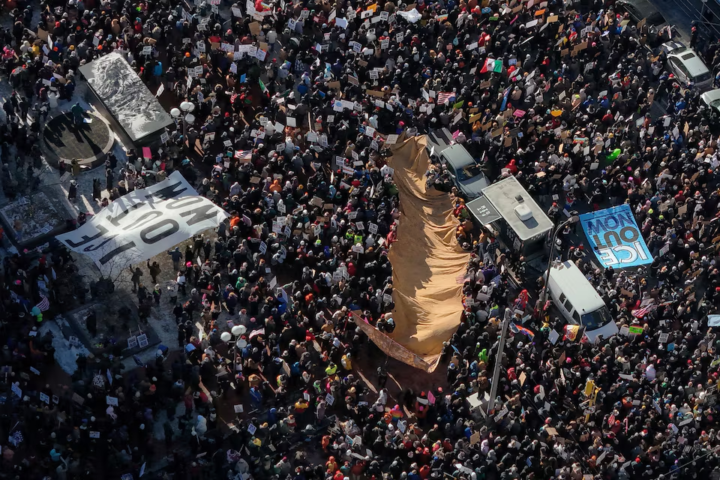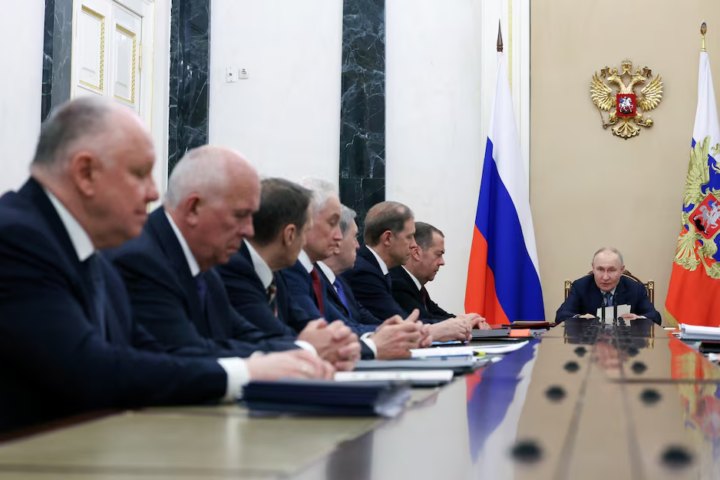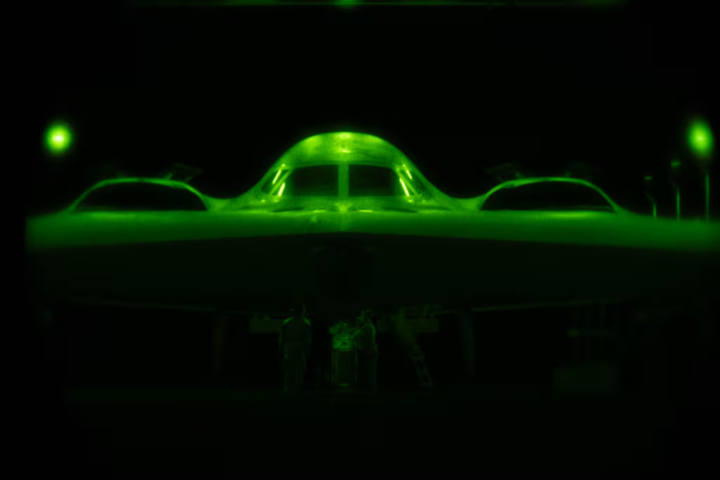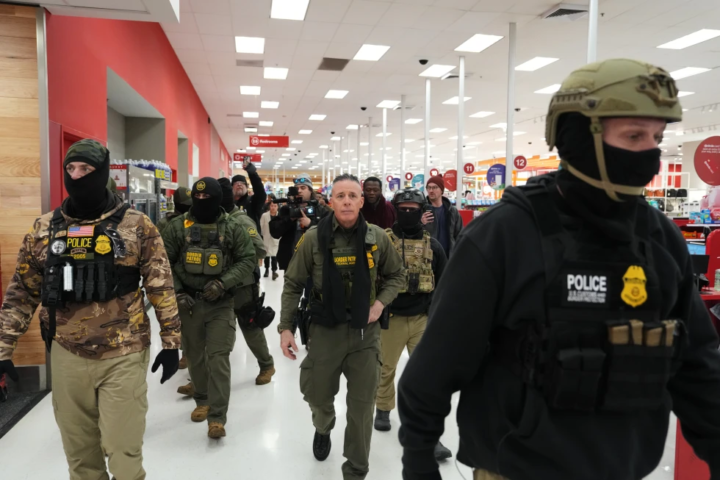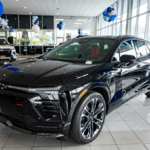D.C. just got more tense. For weeks, National Guard troops stood watch across the city without weapons. That changed. Now, they carry pistols and rifles. The shift came after the Pentagon gave the green light. Officials say it’s only for self-defense or saving lives. But to many in D.C., the sight of armed soldiers on familiar corners feels heavy. It’s a sharp turn in how security looks and feels.
Unlike states, D.C. doesn’t have a governor to control its Guard. The president calls the shots. That makes the city an easy testing ground for Trump’s bigger plans. Local leaders pushed back. Trump didn’t flinch. The move looks less like a safety measure and more like a power play.
Trump Wants More Cities in Line
Trump’s not stopping at D.C. He’s got his eye on Baltimore, Chicago, and New York. He says crime’s out of hand and local leaders failed. So, he wants federal troops on city streets to clean it up. Plans for Chicago are already moving. Thousands of Guard troops could show up as early as September.
Supporters say it’s about safety. They want action, not excuses. Trump leans into that. At rallies, he talks tough. He calls it “taking back our cities.” But critics say it’s all for show. Baltimore crime is actually down. Chicago’s leaders argue that soldiers won’t help—they’ll just raise tensions. And New York says they’ll fight it in court.
Still, Trump presses forward. It’s not just about crime. It’s a message: He’s in charge. He doesn’t trust blue-state leaders. And if they won’t handle things his way, he’ll step in. Whether it helps or hurts neighborhoods seems to matter less than the image it creates.
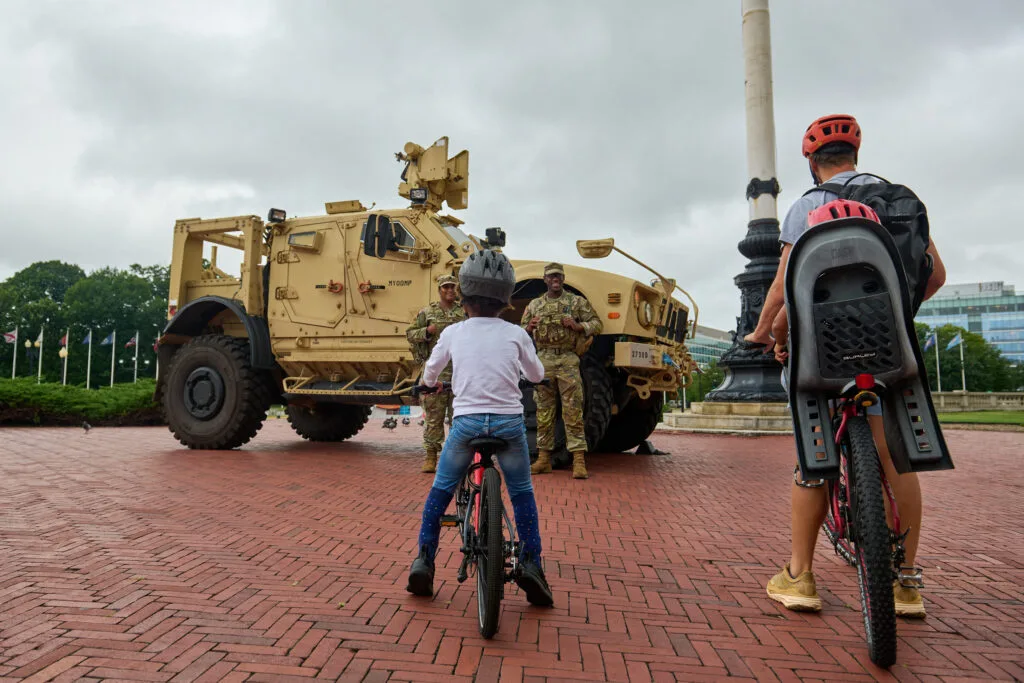
Law, Politics, and the People Caught in Between
Sending armed Guard troops into cities isn’t simple. D.C. is different because the president has full control. In states, it gets tricky. There’s a law—the Posse Comitatus Act—that blocks using federal troops for local law enforcement. Presidents can override this, but only in real emergencies. Doing it without a governor’s okay would bring lawsuits fast.
That’s why experts say it’s easier for Trump to flex power in D.C. than in places like Baltimore or Chicago. But just talking about it gets attention. It drags local leaders into loud public fights. That’s part of the strategy. Pick a target. Force them to respond. Make it political.
Meanwhile, folks living in D.C. have to deal with the real fallout. Some feel safer seeing armed troops. Others feel watched, uneasy, even scared. It changes how people move through their neighborhoods. Soldiers with rifles at bus stops and grocery stores aren’t normal. It might stop some crime. But it might also spark something worse.
For Trump, this move checks a lot of boxes. It shows he’s tough on crime. It stirs up political drama. It challenges Democratic leaders. And it tests how far he can push presidential power. Whether it helps anyone in the long run? That’s a different question.
The Pentagon has its own worries. They’re not keen on using troops this way. It blurs the line between military and police. They issued strict rules. Guns are for emergencies only. They want to avoid deadly mistakes. But even with caution, the risks are real.
For people in these cities, the fight isn’t abstract. It’s on their blocks, in their parks, outside their homes. Whether it brings calm or chaos depends on how it plays out on the ground—not in press briefings or campaign speeches.
Looking Ahead
September’s around the corner. All eyes are on Chicago, Baltimore, and New York. Trump says they’re next. Their leaders say, “Not so fast.” Courts will likely get involved. Protests may follow. The debate won’t be quiet.
What’s happening in D.C. might be the start of something bigger. Or maybe it hits a wall once state leaders and judges push back. Either way, soldiers now stand armed in America’s capital. That image alone speaks volumes. Crime. Control. Power. And a country still figuring out what kind of force it wants to see on its streets.

